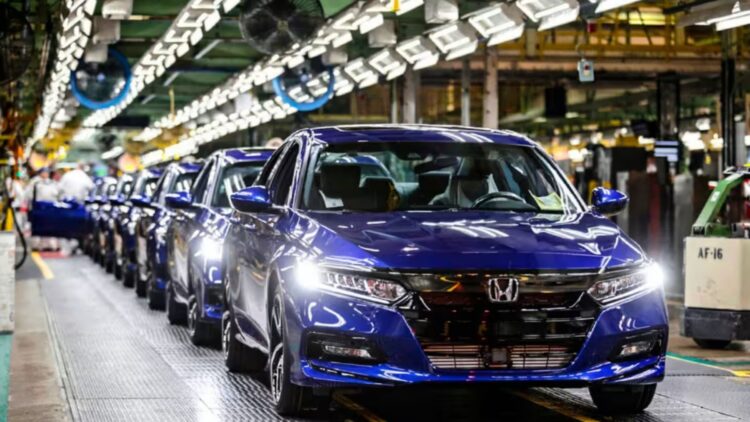The recent trade war has hugely impacted the North America’s automotive industry: Honda Motor Co. has postponed its electric vehicle (EV) project in Ontario, Canada, for two more years. This $15 billion (CAD) plan has gone through changes because of the complex relationship between global trade and the changing EV market: with the rising US tariffs, the Japanese manufacturer decided to pause the deal.
What project Honda was about to implement?
Honda had put forward an all-encompassing plan in April 2024 which included building an EV supply chain in Ontario. This was set to include an EV battery plant, a vehicle assembly facility retrofitting, and two battery component manufacturing plants.
The collective initiatives were anticipated to yield up to 240,000 vehicles annually by 2028, and over 1,000 new jobs alongside retaining 4,200 jobs at Honda’s Alliston manufacturing plant.
In conjunction with this, the federal Canadian government along with the Ontario provincial government pledged a collective $5 billion (CAD) specifically through tax credits and other direct funds.
However, the Japanese manufacturer decided to postpone the project for two years, while the company evaluates the timing and project progression as market conditions change.
What’s driving the postponement?
As a key factor to the postponement is the moderate EV demand: Honda noted a recent slump in the EV market’s growth. While global adoption for EVs is on the rise, the rate has slowed down in some places, which has made automakers rethink their investment schedules.
However, the repercussions of U.S. trade policies are perhaps more consequential. The Trump administration has placed tariffs on foreign automobiles including a 25% tax on vehicles from numerous countries. These policies have made supply chain processes more complex and has increased the cost of doing business for automakers such as Honda.
Honda’s projections show an operating profit decline of 59% for the fiscal year ending 2026, of which he estimates over half will be attributable to global tariffs. The firm projects a 650 billion yen loss in fiscal 2026 profits from the global tariff burden, which includes 300 billion yen from tariffs linked to the importation of approximately 550,000 vehicles.
While demand is one variable that must be considered, tariffs are the primary reason that tipped the balance of supply and demand. With Honda having global supply chains as a Japan based automaker, these tariffs deal a serious blow to the company’s revenue. The Inflation Reduction Act make the operation unfeasible economically, discouraging companies from producing or importing the vehicles to US borders.
This adds to the trend concerning the industry, car manufacturers are now redesigning their strategies more on geopolitics alongside technology. The location of a plant’s construction and the classification of vehicles under new trade legislation will likely decide who wins or loses in the next phase of the transition to electric vehicles.
Consequences for the automotive industry in Canada
The decision that Honda made to postpone the project is not an isolated incident: it coincides with a many other issues troubling Ontario’s automotive landscape. Other car manufacturers, such as Stellantis and General Motors (GM), also had to make changes in their operations in order to adapt to the new market needs.
As for Honda, the company does not show any willingness to change its decision, reinforcing the specific market conditions as the reason. This situation demonstrates the volatility behind a once stable automobile industry. With the shifting in trade policies, soon automakers will struggle to strategically work out the best way to place their investments according to market conditions.
To Canada, this is yet another wake up call for more immediate action in terms of developing the foundations for an automotive industry that is more adaptable to unpredictable external factors, such as the rise in US tariffs, and that can properly respond to the global turn toward electric vehicles (EVs).


